Best Camping Sleeping Pads for Comfort and Outdoor Adventure
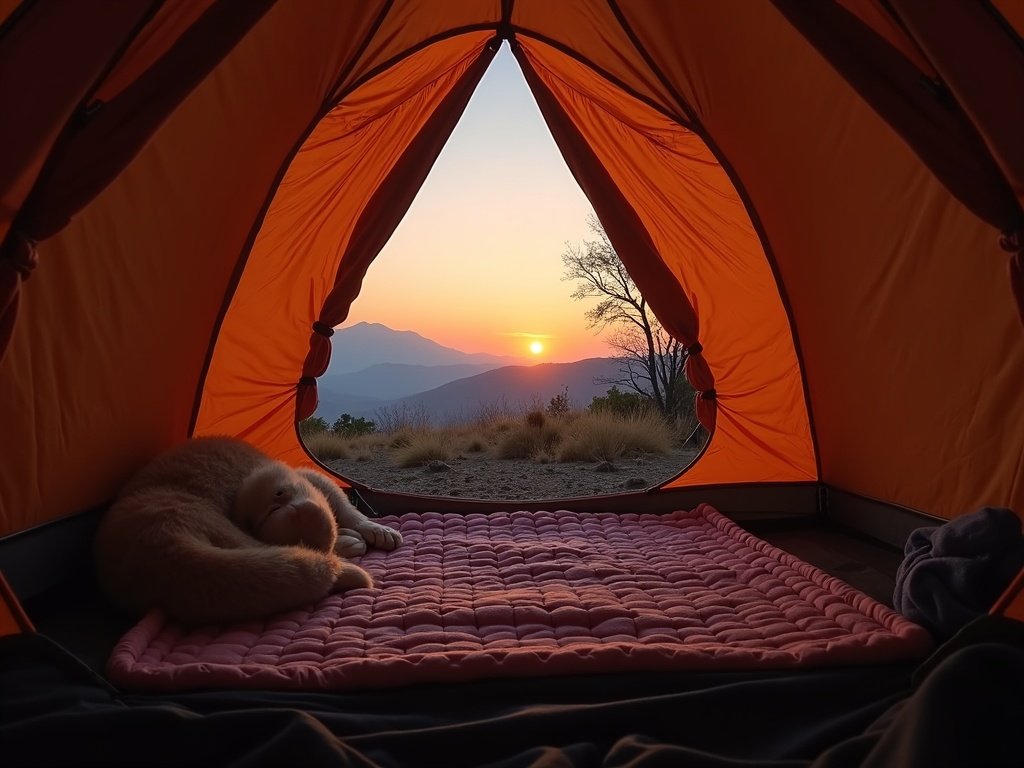
Best Camping Sleeping Pads for Comfort and Outdoor Adventure
A great day on the trail begins with a good night’s sleep under the stars. But let’s be honest—sleeping on uneven, rocky ground isn’t exactly dreamy. That’s where the best camping sleeping pad comes in, transforming your tent floor into a cozy retreat after a long day of hiking, exploring, or dancing by the campfire. Whether you’re car camping in comfort or backpacking deep into the wild, the right pad can make all the difference between restless tossing and rejuvenating slumber.
In a world where every ounce matters and every inch of space counts, today’s sleeping pads are designed to impress. From ultralight air pads to plush foam layers that feel like a bed away from home, this new generation of camping gear blends durability with dreamy softness. And here’s the kicker—you don’t have to break the bank to sleep like royalty. Many top-rated options are surprisingly affordable, offering premium comfort without the premium price tag.
Ready to upgrade your outdoor sleep game? These picks for the best camping sleeping pad will help you wake up refreshed, recharged, and ready for your next adventure. Let’s dive into the options that truly deliver on comfort and performance.
Why Sleeping Pads Matter When Camping
Before jumping into the options, it’s worth talking about why a sleeping pad is more than just a luxury item for campers. At first glance, you might think, “Hey, I’ve got a sleeping bag. I’m good.” But here’s the deal—it’s not just about softness. It’s about support, insulation, and comfort.
- Comfort: Rocks, twigs, and uneven ground can make sleeping on the forest floor a literal pain. A sleeping pad adds cushioning to keep you pain-free.
- Insulation: Sleeping bags keep you warm on top, but the ground beneath you can sap your body heat fast. Sleeping pads help block cold from seeping in.
- Support: A proper pad gives your hips and shoulders the support they need, especially for side sleepers.
So yes, the ground might be hard. But with the right sleeping pad, your night doesn’t have to be.
Types of Camping Sleeping Pads
Not all sleeping pads are built the same. Depending on your camping style—whether you backpack long distances or drive up to a cozy campsite—there’s a type built just for you.
1. Closed-Cell Foam Pads
These are your classic roll-up pads: super light, durable, and budget-friendly. They’re made of dense foam filled with tiny closed air cells. They may not feel super plush, but they get the job done.
Best for: Ultralight backpackers, minimalists, and budget campers.
- Very lightweight and simple
- No risk of punctures or leaks
- Insulated to block cold from the ground
- Bulky – not easy to pack down
2. Self-Inflating Pads
These pads combine foam and air. Open the valve, and air rushes in, partially inflating the pad (you can add a few breaths to firm it up). They’re more comfortable and warmer than closed-cell foam but heavier and bulkier.
Best for: Car campers, weekend adventurers, and folks who value comfort and convenience.
- Easy to use – just open the valve and let it work
- Thicker than foam pads = greater comfort
- Heavier and bulkier for long backpacking trips
3. Air Pads
The most popular choice today, air pads pack tiny and inflate big. They offer excellent padding with adjustable firmness. Many new air pads also have insulation or reflective layers to increase warmth.
Best for: Backpackers, through-hikers, and campers who want comfort without added weight.
- Very compact and lightweight
- Customizable firmness for side, back, or stomach sleepers
- Some include insulation for cold-weather use
- Can be punctured, requires care
Understanding R-Values: Staying Warm Through the Night
How warm your sleeping pad is comes down to something called the R-value. This number tells you how well the pad resists heat loss to the ground. The higher the value, the warmer the pad.
Here’s a quick breakdown:
- R-Value 1-2: Best for warm-weather camping
- R-Value 2-4: Good for spring and fall
- R-Value 4+: Handles colder temps—perfect for winter or mountain camping
Just like you’d choose a sleeping bag for the weather, pick a sleeping pad with the right R-value for your destination. Even in summer, some insulation makes a difference on chilly nights.
Top Sleeping Pads for Camping in 2024
Based on expert testing, user reviews, and real-world performance, here are some of the best camping sleeping pads you can snag this year:
1. Therm-a-Rest NeoAir XLite NXT
Weight: 13 oz — R-Value: 4.5 — Type: Air pad
If you want top-notch performance in a compact package, this air pad is hard to beat. It’s ultralight, packable, and boasts impressive warmth thanks to advanced layering inside.
- Super light and packs down small
- Warm enough for 3-season use with a solid R-value
- Quiet, comfy surface for better sleep (reduced crinkly noise!)
Best for: Serious backpackers and campers looking for warmth and performance without extra weight.
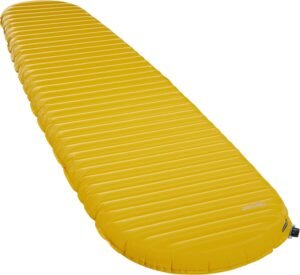
2. NEMO Tensor Insulated Sleeping Pad
Weight: 15 oz — R-Value: 4.2 — Type: Air pad
This one is loved for its cozy feel and whisper-quiet fabric. Side sleepers especially appreciate the comfort and support. Plus, the included pump sack makes inflation super easy.
- Great comfort, especially for side sleepers
- Comes with a pump sack (your lungs will thank you)
- Excellent insulation for cooler nights
Best for: Campers who prioritize comfort and quiet without adding too much weight.

3. Therm-a-Rest Z Lite Sol
Weight: 14 oz — R-Value: 2.0 — Type: Closed-cell foam
This pad is tough, reliable, and super light. It won’t win any awards for plushness, but it’ll survive anything. Many thru-hikers use it as both a pad and a seat during the day.
- Virtually indestructible
- Simple to use – no inflation needed
- Doubles as a sit pad for rest stops
Best for: Ultralight hikers, budget-conscious campers, and minimalists.
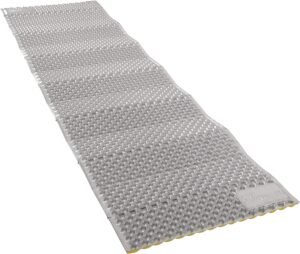
4. Sea to Summit Ether Light XT Insulated
Weight: 16.9 oz — R-Value: 3.2 — Type: Air pad
This one’s a dream for comfort lovers. It’s thicker than most and features Air Sprung Cells, which feel more like your bed at home. If you toss and turn at night, this could be your best friend on the trail.
- Extra thick for plush sleeping
- Quiet and extremely comfortable
- Packs down reasonably small given its thickness
Best for: Side sleepers, comfort seekers, and those who need a little extra cushioning.

5. REI Co-op Trailbreak Foam Pad
Weight: 14 oz — R-Value: 2.1 — Type: Foam
This budget-friendly foam option delivers durability and decent insulation. It’s nothing fancy, but it works well, especially for summer camping or as an emergency backup pad.
- Super affordable
- Good for beginners or backup use
- Tough enough to use directly on rocky terrain
Best for: Camping newcomers, kid campers, and budget gear shoppers.
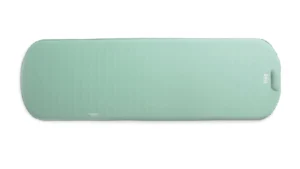
How to Choose the Best Sleeping Pad for You
Still unsure which one to go for? No worries. Here’s a quick cheat sheet to help you decide:
Ask yourself these questions:
- How are you getting to your campsite? If you’re backpacking, go lightweight. If you’re driving, comfort > weight.
- What’s the weather like? Cooler temps need higher R-values. Don’t skimp here or you’ll freeze from the ground up.
- Do you need plushness? Side sleepers and comfort-lovers should aim for thicker air or self-inflating pads.
- Are you rough on your gear? Foam pads are tough; air pads need more care but bring the comfort.
Tips for Getting the Most from Your Sleeping Pad
Once you’ve chosen the best sleeping pad for camping, make sure you treat it well. A few simple steps can make a big difference.
- Test it at home before heading into the wild – know how to inflate, deflate, and pack it.
- Use a groundsheet or tent footprint to prevent sharp rocks or sticks from damaging inflatable pads.
- Store inflated at home (especially foam/self-inflating pads) to help it last longer.
- Clean it with mild soap and water after your trip and dry it well before storage.
Bonus tip? Bring a lightweight pillow or stuff a fleece in your sack for added comfort. Your body will thank you by day three in the woods.
Final Thoughts: Camp Better, Sleep Better
You wouldn’t go for a long hike in the wrong shoes—so don’t settle for lousy sleep on your camping trip. A solid camping sleeping pad can be the difference between rising with the sun refreshed and dragging through your second cup of coffee.
Choose one that fits your style, needs, and budget. From ultralight air pads to rugged foam mats, there’s something out there for everyone. And once you find that perfect pad, you’ll look forward to bedtime as much as the campfire stories and hiking views.
Your bed might be miles away, but your comfort doesn’t have to be. Sleep smart, sleep warm, and get out there—your adventure awaits!
FAQs: Sleeping Pads for Camping
Q: What size sleeping pad should I get?
Most people are fine with a regular size (around 72″ long), but taller folks may want to look for a “long” version. Width also matters—standard is 20 inches, but wide (25″) or even double sizes exist for extra space or couples.
Q: Can I use a yoga mat as a sleeping pad?
Technically, yes—but expect a rough night. Yoga mats don’t provide insulation against cold ground, and they’re not thick enough for real comfort. Fine for a nap, not for a multi-day trip.
Q: How do I pack an air pad for backpacking?
Most come with a stuff sack. Deflate fully, roll tightly (starting at the bottom), and store it in its sack. Keep it near the top or side of your pack for easy nighttime access.
Q: Do I really need a sleeping pad in warm weather?
Yep! Even if you’re not worried about cold, you’ll still appreciate the cushioning and separation from rocky or uneven terrain. Plus, it’s easier to sleep with consistent support under you.
Ready to upgrade your outdoor sleep game? Check out the sleeping pads listed above, and enjoy your next night under the stars in total comfort!


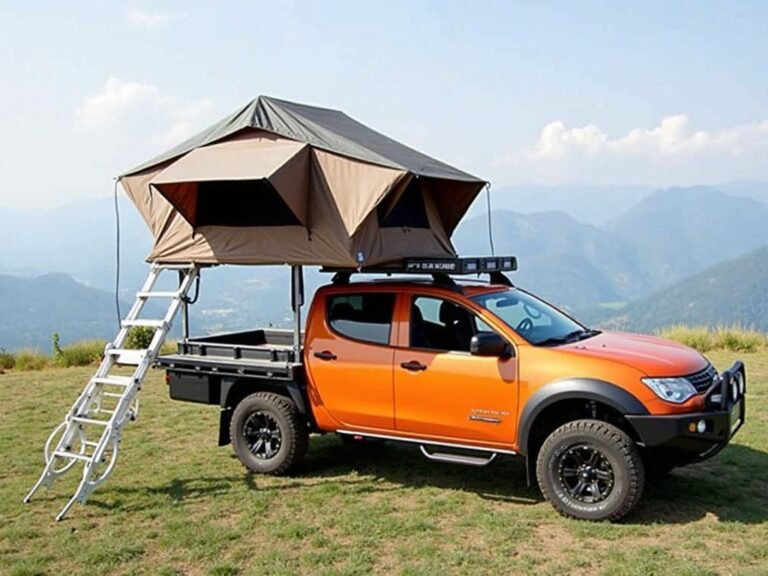

[…] Best Camping Sleeping Pads for Comfort and Outdoor Adventure […]
[…] Best Camping Sleeping Pads for Comfort and Outdoor Adventure […]